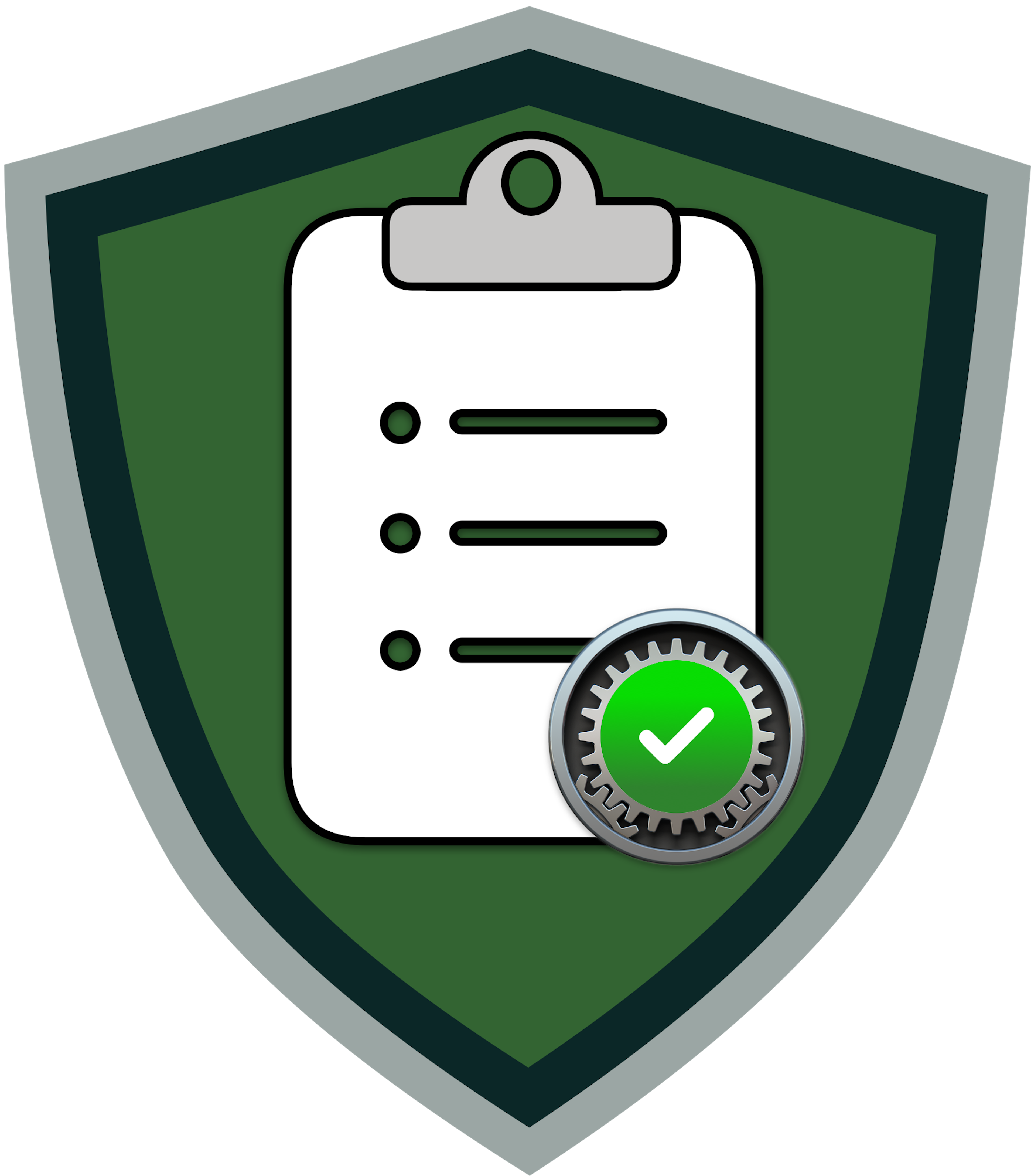Quick Guide
5-Step Workflow
Section titled “5-Step Workflow”-
Install Prerequisites
Section titled “Install Prerequisites”macOS includes Python 3 and Ruby. You just need to install the packages:
Python packages (required):
Terminal window pip3 install pyyaml xlwt --userRuby gems (optional — only needed for PDF output):
Terminal window gem install asciidoctor asciidoctor-pdf rouge --user-installWant isolated installs? Click to expand
A virtual environment keeps packages separate from your system Python — useful if you don’t want to install packages globally or need to avoid conflicts.
Python virtual environment:
Terminal window # Create environment (once)python3 -m venv venv# Activate before running scriptssource venv/bin/activate# Install packages inside the environmentpip3 install -r requirements.txt# When done, deactivatedeactivateRuby local bundle:
Terminal window bundle install --path vendor/bundle -
Clone & Checkout Branch
Section titled “Clone & Checkout Branch”Terminal window git clone https://github.com/usnistgov/macos_security.gitcd macos_securitygit checkout sequoiaReplace
sequoiawith your target macOS version. -
Generate a Baseline
Section titled “Generate a Baseline”List baselines:
./scripts/generate_baseline.py -lGenerate:
./scripts/generate_baseline.py -k BASELINE_NAMEWith tailoring:
./scripts/generate_baseline.py -k BASELINE_NAME -tTerminal window # Example: Generate NIST 800-53 Moderate baseline./scripts/generate_baseline.py -k 800-53r5_moderate -
Generate Outputs
Section titled “Generate Outputs”Run
generate_guidance.pywith the flags you need:Terminal window ./scripts/generate_guidance.py [flags] baselines/BASELINE_NAME.yamlFlag Output (none) Guidance docs ( .adoc,.html,.pdf)-sCompliance script -pConfiguration profiles (one per payload) -PSingle consolidated profile -DDDM components -xExcel spreadsheet Example — Generate all common outputs:
Terminal window ./scripts/generate_guidance.py -s -p -x baselines/800-53r5_moderate.yaml -
Use Your Files
Section titled “Use Your Files”Everything goes to
build/BASELINE_NAME/:build/800-53r5_moderate/├── 800-53r5_moderate.adoc├── 800-53r5_moderate.html├── 800-53r5_moderate.pdf├── 800-53r5_moderate_compliance.sh├── mobileconfigs/├── preferences/├── activations/ ← DDM (if -D used)├── assets/└── configurations/
Running the Compliance Script
Section titled “Running the Compliance Script”Interactive mode:
sudo ./build/800-53r5_moderate/800-53r5_moderate_compliance.shAutomated mode:
| Flag | What it does |
|---|---|
--check | Run checks only |
--fix | Run fixes only |
--cfc | Check → Fix → Check |
--stats | Show last run statistics |
--compliant | Report compliant count |
--non_compliant | Report non-compliant count |
--reset | Clear results for this baseline |
--reset-all | Clear results for all baselines |
--quiet=1 | Show failed/exempt only |
--quiet=2 | Minimal output |
# Quick checksudo ./build/800-53r5_moderate/800-53r5_moderate_compliance.sh --check
# Full remediationsudo ./build/800-53r5_moderate/800-53r5_moderate_compliance.sh --cfc --quiet=2Available Baselines
Section titled “Available Baselines”Example baselines (may vary by branch):
| Framework | Baseline Name |
|---|---|
| NIST 800-53 Rev 5 | 800-53r5_high, 800-53r5_moderate, 800-53r5_low |
| NIST 800-171 | 800-171 |
| DISA STIG | DISA-STIG |
| CIS Benchmarks | cis_lvl1, cis_lvl2, cisv8 |
| CMMC 2.0 | cmmc_lvl1, cmmc_lvl2 |
| CNSSI 1253 | cnssi-1253_high, cnssi-1253_moderate, cnssi-1253_low |
| All Rules | all_rules |
Script Reference
Section titled “Script Reference”generate_baseline.py
Section titled “generate_baseline.py”Creates the baseline YAML file.
| Flag | Purpose |
|---|---|
-l | List available baselines |
-k NAME | Generate baseline |
-t | Interactive tailoring |
-c | Show 800-53 controls |
generate_guidance.py
Section titled “generate_guidance.py”Generates all outputs from a baseline.
| Flag | Purpose |
|---|---|
-s | Compliance script |
-p | Config profiles |
-P | Consolidated profile |
-D | DDM components |
-x | Excel file |
-l LOGO | Custom logo |
-H HASH | Sign profiles |
-a NAME | Custom audit name |
-r REF | Custom reference ID |
generate_scap.py
Section titled “generate_scap.py”Generates SCAP/OVAL content for compliance scanning tools.
| Flag | Purpose |
|---|---|
-x | XCCDF file |
-o | OVAL file |
-b NAME | Specific baseline |
-d FILE | Include DISA STIG references from file |
-l | List tags |
Common Workflows
Section titled “Common Workflows”Compliance Check
Section titled “Compliance Check”Scan a Mac for compliance issues:
./scripts/generate_baseline.py -k 800-53r5_moderate./scripts/generate_guidance.py -s baselines/800-53r5_moderate.yamlsudo ./build/800-53r5_moderate/800-53r5_moderate_compliance.sh --checkMDM Deployment Package
Section titled “MDM Deployment Package”Generate profiles and DDM for device management:
./scripts/generate_baseline.py -k DISA-STIG -t./scripts/generate_guidance.py -p -D -s build/baselines/DISA-STIG.yamlFull Documentation Set
Section titled “Full Documentation Set”Create all outputs for documentation and audit:
./scripts/generate_baseline.py -k cis_lvl2./scripts/generate_guidance.py -s -p -x baselines/cis_lvl2.yamlCustomization Options
Section titled “Customization Options”| Option | Description | Link |
|---|---|---|
| Tailor Baseline | Select rules and set Organization Defined Values | Learn more → |
| Customize Rules | Modify rules in custom/rules/ folder | Learn more → |
| Exempt Rules | Mark rules as approved exceptions | Learn more → |
| Sign Profiles | Sign with your certificate using -H HASH | Learn more → |
